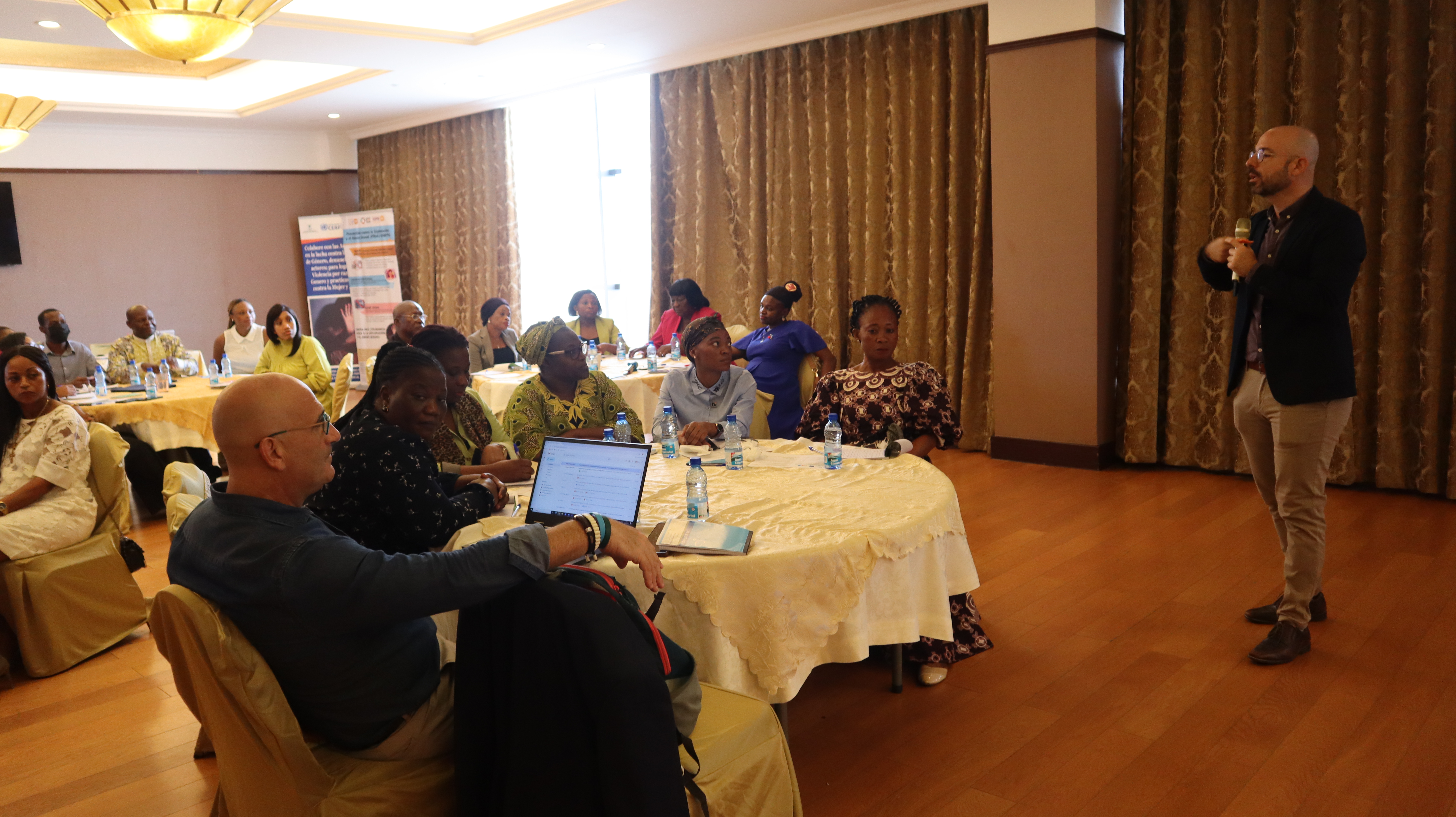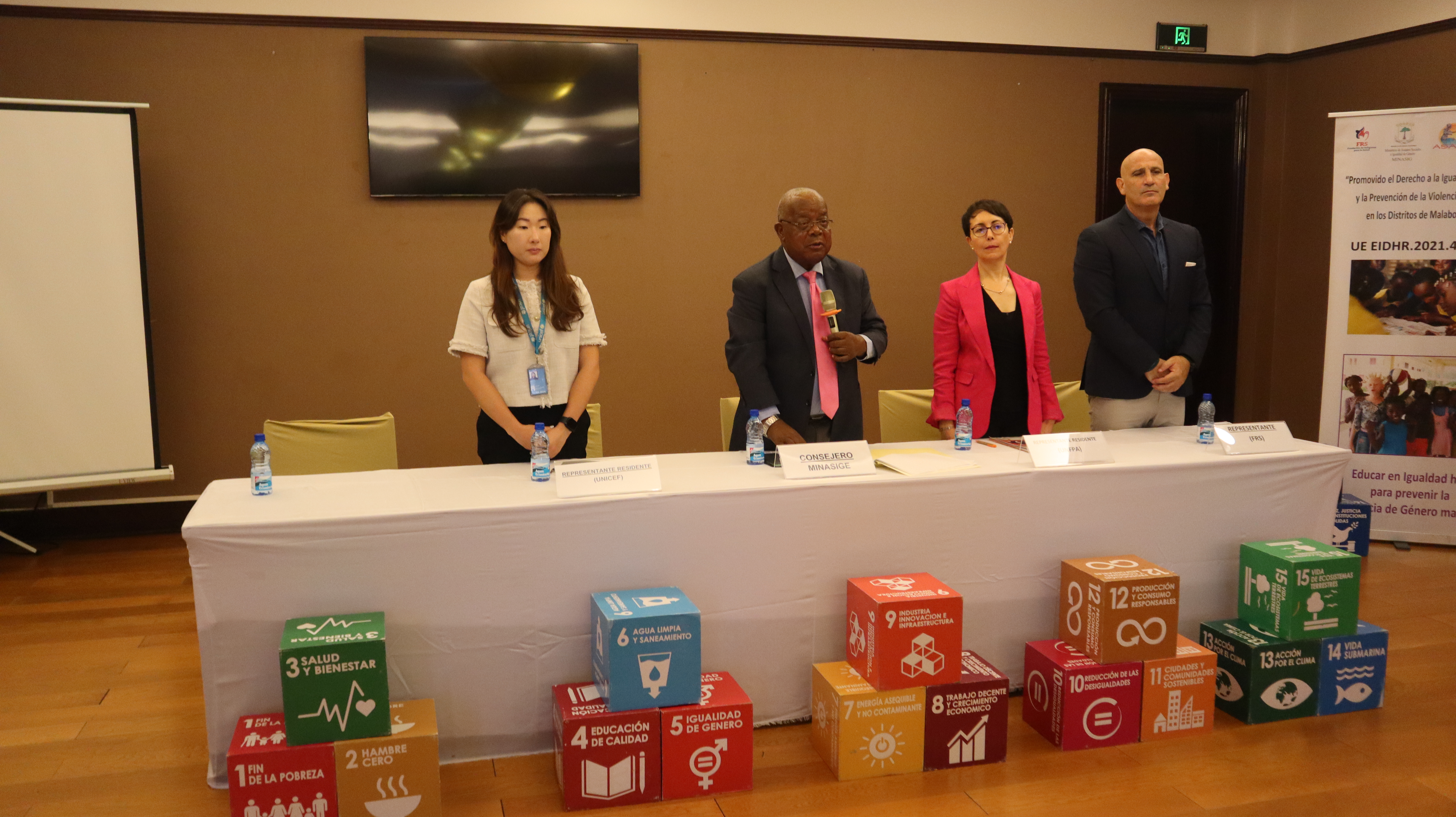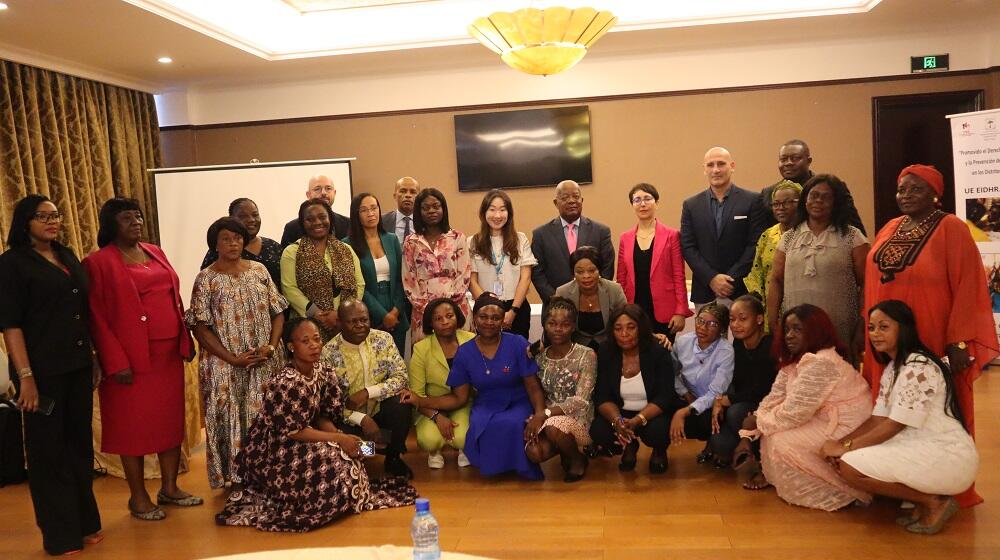MALABO, Equatorial Guinea, May 27-29, 2024 – A five-day workshop aimed at bolstering the nation's response to gender-based violence (GBV) concluded successfully on May 31st, marking a significant step towards improving care for survivors and preventing future Gender based violence.
The workshop, held at the Hotel Colinas in Malabo from May 27th to 31st, was led by the United Nations Population Fund (UNFPA) under the leadership with the Ministry of Social Affairs and Gender Equality, and with the collaboration of UNICEF, and the Foundation of Religious for Health (FRS). The training focused on enhancing the technical and operational skills of public officials involved in managing GBV cases.
Pedro Guerra, Program Specialist from UNFPA's West and Central Africa Regional Office in Dakar, served as the lead facilitator. His expertise in GBV response and holistic care was instrumental in guiding participants through a comprehensive Training Plan.
"Mr. Guerra's ability to connect complex concepts to the realities faced by service providers in Equatorial Guinea was truly remarkable," said Mrs Emerenciana Nko Ivasa, Provincial Delegate of Bioko Norte from the Ministry of Social Affairs and Gender Equality. "His facilitation created a safe and engaging space for participants to share their experiences and learn from one another."
The workshop included a thorough assessment of the technical and operational needs of different sectors involved in GBV response, including health, security, justice, and social services. Participants gained valuable skills in case management, referral pathways, and the use of the national Protocol for the Care of Victims of Gender-Based Violence.
A key highlight was the emphasis on providing holistic care for survivors, addressing not only their physical health but also their psychological and social well-being. UNICEF and FRS shared their expertise in child protection and psychosocial support and case referrals, further enriching the training.
"This workshop has equipped us with the knowledge and tools we need to better serve survivors of violence," said Mrs Maria Dolores Nchama Sima, President of local NGO Futura Generacion. "We are now more confident in our ability to coordinate a multi-sectoral response and ensure that survivors receive the comprehensive care they deserve."
The workshop's success underscores the commitment of the government of Equatorial Guinea and its partners to address the high rates of GBV in the country. By investing in the skills of its public officials, the nation is taking a crucial step towards creating a society where women and girls are safe and empowered.




